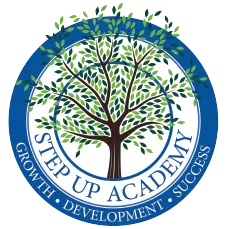Bouncing Back: Strategies for Overcoming Exam Failure
Most of us tend to have our self-esteem compromised by our exam results thus connecting all that we are with number grades. When we fail to perform, confidence diminishes. Still, it is important to note that we are more than just one test and our worth lies deeper. This is the point where growth takes place. Success does not end with exam failure but through personal and professional growth acquired in extracurricular activities and one’s own projects. It is necessary to set realistic expectations, avoiding perfectionism. Look at your study practice, consult guides, and ask for assistance so as to improve for future tests.

The recognition of the personal or unforeseen challenges in life and identification with those covers can help to cope with it. After getting a surprising outcome, nothing is wrong with letting emotions receive some room. Suppressing them hinders healing. It is necessary to humanize the feeling of being let down. We need to overcome negative thoughts, concentrate on positive attributes and previous victories. Adopt a growth mindset where errors are seen as steps towards development. When disappointment settles down, remember to lean on your support system: friends and family members; mentors. In tough times, we need someone to lean on.
Building Resilience after Exam Failure
Facing exam setbacks? Hold a growth mindset, embrace constant improvement, and see failures as learning experiences. To challenge the fixed ideas of intelligence, highlighting that it is developed over time. Resilience is your strength, and with focused effort and perseverance, you will reach your goal. After which, look back at previous performances to formulate realistic goals; divide them into manageable portions and reward even small steps for incrementally raised confidence. Learn from mistakes, develop an appropriate study plan, and utilize active learning techniques in mastering the material. Such approaches are your guide towards recovery after a demanding test.
Overcoming Exam Anxiety and Stress
Recognizing Exam Stress Triggers
Let’s deal with exam stress fully. Identify those warning signs—tachycardia, hyperactivity and irritability. Determine the causes that lead to stress for you personally and make a plan on how to deal with these situations. Here’s the secret sauce: master time management and organization. A study schedule, task segmentation, and prioritization makes you the boss of your exam preparation. Stress? No chance.
Implementing Stress Reduction Techniques
How about we face exam stress? For starters, start with relaxation techniques such as deep breaths or indulging yourself in hobbies – have a spa day for your brain. Include regular physical activity—a walk, run, or even a session of yoga—to liberate some endorphins and eliminate the exam anxiety from your mind. And don’t forget the MVPs: self-care and mindfulness. Schedule intermittent vacations for your brain by practicing mindfulness, improving sleep quality and duration, taking breaks, and eating healthy. Your future self will be grateful for this comprehensive approach to healthy living at times of high stress.
Ask for help from professionals, if necessary
So, let us approach the topic in a more profound manner now – sometimes, exam stress can spill beyond itself and evolve into anxiety or even depression. When you see obvious signs that there is more to it than the common stress demands, then treat it right away. If symptoms persist and begin to interfere with your daily activities, this is the time you should find an expert’s help. Most institutions have support services that provide this very service. They have resources and advice designed especially for students with exam anxiety; use them if you want to.
Incidentally, those support services? They’re gold. From counseling to stress management seminars and even their additional academic assistance is available. Check what they can offer, and see what works for you.
And by the way, therapy and counseling are tools themselves. With the help of professional therapists and counselors, you can learn strategies to deal with problems, uncover the source of their anxiety, and find a secure environment for discussion. If you think it can assist, then please proceed. Do not hesitate to pursue therapy or counseling if you feel that this is what you would benefit from. Your mental health matters.
Learning from Exam Failure
Let’s decode those exam results. Focus on your strengths and work out a plan to address the weaknesses. Know how they mark, understand your school standards. Identify weaknesses, develop plans – additional resources, practice skills, study alterations. That is the route towards passing other tests in the future.
Developing Effective Study Strategies
Increase the value of active learning – summarize it, quiz yourself or even teach others for better recall. Create an effective study plan with specific objectives, breaking tasks into manageable chunks of work. Prevent overwhelm and stay focused. Change your sources – consult books, recordings, computer programs, and get comments from teachers or classmates to receive different viewpoints and overcome knowledge deficiency. It’s the perfect recipe for exam success.
Creating a supportive learning environment
Support each other and share ideas, concepts, and keep you on track with a group. If topics become complicated, turn to tutoring or academic assistance for individual help . The secret weapon—talk to professors. Obtain clarifications, address concerns, and demonstrate commitment. It’s the triad for an effective learning voyage.
Bouncing back after the exam failure requires the awareness of its damaging effects on mental health and determining factors like unrealistic goals or lack of preparation. Being aware of emotions, having a growth mindset and following achievable goals are critical in resilience development. Study habits, peer and tutor support and communication with the teachers promote a favorable learning climate. To reduce stress in an examination situation, identifying triggers, implementing stress reduction strategies and not hesitating to involve a specialist when necessary are important. Objective analysis of exam results, active learning strategies and a diverse support system facilitate success ahead.


